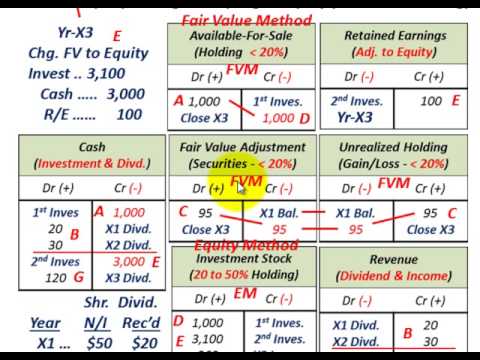Contents:


The company also provides wealth management, institutional broking, share broking, asset management, and mutual fund and insurance advisory services as well as portfolio management services. Some private individuals of means may lack the time, effort, or knowledge to manage their own finances. So they seek the counsel of wealth managers who specialize in managing the finances of private, often high-net-worth individuals . HNWIs have unique financial situations that require greater diligence and a higher degree of active management. Private wealth managers offer the same types of services but for high-net-worth individuals or accredited investors with assets in the millions. This could include, buying certain types of insurance policies, planning for education or retirement or engaging the services of an estate planning attorney.
If you don’t have enough wealth to meet this requirement, you cannot hire them even if you wanted to. When choosing an asset manager, check the manager or platform (if you’re using a robo-advisor) credentials. It’s important to determine whether a manager operates by a suitability standard or a fiduciary standard, with the latter method benefitting you most.
Health Plans
Breaking into wealth management is a good career move for financial advisors. A wealth manager would earn $50,000 in commissions in a year from one client if they were to charge a fee of just 0.50% to a client with $10 million in their portfolio. Wealth management is the process of making decisions about your assets, sometimes with a wealth manager.

Private wealth management could be the perfect solution for individuals looking for a professional to help manage their wealth. Assets under management rises, the advisory fee percentage is frequently scaled and eventually drops. Wealth management consists of all parts of personal financial life.
The goal of a wealth manager is to help clients grow and preserve their wealth over the long term. When members of the public are asked the same question, the answers vary greatly for two reasons. One individual may think having $10,000 in the bank would be wealthy, yet for others it may be $100,000 or $1 million or $10 million. The other reason is that most people have never taken the time to think about all the processes that can be used to manage their wealth. However, some advisors charge more, especially on smaller account balances.
The process of dividing an investment portfolio among different asset categories, like stocks and bonds. The offers that appear in this table are from partnerships from which Investopedia receives compensation. Investopedia does not include all offers available in the marketplace. According to Indeed, the average salary for a wealth manager in the United States in 2022 was $79,395. This service is usually appropriate for wealthy individuals with a broad array of diverse needs.
What Is Wealth Management? A Definition That Works For Everyone
This may be based on the expertise of a specific wealth manager, or the primary focus of the business within which the wealth manager operates. Private wealth management mainly concentrates on investments and portfolio oversight, while financial planning considers all aspects of an individual’s finances. Private wealth management firms typically take a portion of their client’s assets as fees. Wealth managers employed with smaller firms, not connected to banks or financial institutions, are called independent private wealth managers.
Investment management refers to the handling of financial assets and other investments—not only buying and selling them. Management includes devising a short- or long-term strategy for acquiring and disposing of portfolio holdings. It can also include banking, budgeting, and tax services and duties, as well. A family office provides a wider range of services tailored to meet the needs of HNWIs.
Portfolio investment techniques that provide individuals with after tax returns that meet their objectives must address such taxes. Individuals face a finite life as compared to the theoretically/potentially infinite life of institutions. This fact requires strategies for transferring assets at the end of an individual’s life. These transfers are subject to laws and regulations that vary by locality and therefore the strategies available to address this situation vary. Since 2009 we have been gradually bundling our competences in international wealth management in Germany. In the framework of this strategic orientation we have decided to sell our activities in Luxembourg.
As the name term itself clarifies the definition, private wealth management doesn’t account for corporations, trusts, groups or other types of clients. Private wealth management is also termed as personal wealth management as well. A wealth manager is a certified professional who provides financial advice and services to clients who need wealth management help. They are a licensed financial professional who typically provides a comprehensive range of services.
What Is Wealth Management? A Definition That Works For Everyone – Forbes
What Is Wealth Management? A Definition That Works For Everyone.
Posted: Fri, 20 Apr 2018 07:00:00 GMT [source]
These different processes, services or products, are often obtained from different providers or firms. Individuals who are too busy, lack the expertise, or need more experience to take care of their money can also greatly benefit from private wealth management services. Running an investment management business involves many responsibilities. The firm must hire professional managers to deal, market, settle, and prepare reports for clients. Other duties include conducting internal audits and researching individual assets—or asset classes and industrial sectors.
Here’s what you need to know about wealth management before deciding if you need a wealth manager, or to help with choosing a firm. Your wealth—as measured by both possessions and money—should be managed in order to grow or to avoid losing value. Wealth management is the process of reviewing and making decisions about your wealth so you can achieve your financial goals.
This wealth management definitions, but isn’t limited to, financial investments, tax planning, estate planning and other financial matters. When someone in the financial services industry is asked that question, the answers often vary based on the services or products that that individual or firm offers. An example would be an insurance company where their agents sell insurance but describes its insurance agents as providing wealth management. Or an investment firm that is solely managing your investments, but refers to those services as wealth management. Whether or not to use private wealth management services should be based on various factors such as resources available, the complexity of the financial situation, and comfort level with handling money.
“Asset management” concerns assets, including cash, stocks, bonds, and real estate. “Wealth management” concerns all aspects of wealth, including tax issues, business ownership, and legacy issues that will affect your family for generations. The XY Planning Network also offers the ability to search for financial advisors who specialize in wealth management. If you’re thinking about working with a wealth manager, you’ll want to ask many of the same questions you’d ask before hiring any financial professional.
Examples of wealth management
The strategy a wealth manager employs should match the individual investor’s risk tolerance and financial goals. For example, if a client is nearing retirement, a wealth manager might start shifting the focus from risky growth investments to safer investments that can help a retiree maintain their wealth. For instance, a wealthy individual who has been married and divorced, owns multiple properties and has a plethora of investments and accounts to manage may need expertise in legal matters, property taxes and investments. A wealth manager could create a holistic financial plan that takes each of those needs into consideration, either on their own or with outside counsel. The type of service offered by a wealth management firm is best suited to affluent clients. But while you may not require wealth management now, your needs are likely to change over time.
- You can review someone’s certified financial planner credentials via the CFP Board.
- As a fiduciary, these advisors promise to act in their client’s best interests or face criminal liability.
- You want someone you can trust to put your own needs above their own success.
- Tax Specialist | Personal finance reporter for 16+ years, including work for the Wall Street Journal and MarketWatch.
- Some wealth managers also provide banking services or advice on philanthropic activities.
- The two main types of private wealth managers are those working independently and those hired by a bank or another financial institution.
If you’re clear about your goals and confident in your ability to choose the products and strategies that will help you grow and protect your wealth, you may not need the help of a wealth manager. A wealth manager can provide advice on how to structure your finances in a way that minimizes your tax liability. This is especially important if you own your own business or have multiple income streams. Importantly, each part of a client’s financial picture, whether it is tax planning or wills and estates, are coordinated together to protect the wealth of the client. This may coincide with financial projections and retirement planning. Newer, fully-automated roboadvisor platforms intended as wealth management tools for ordinary individuals often charge far less than 1% per year of AUM and come with low minimum account balances to get started.
It’s typically a good idea to find an advisor who is not only certified but works as a fee-only fiduciary. This means that they are paid directly by you, and not by any potential products that they may recommend to you. As a fiduciary they are, instead, legally obligated to put your needs first. Turnkey asset management programs are used by financial advisers and broker-dealers to oversee their clients’ accounts.
A client may receive services from a single designated wealth manager or may have access to the members of a specified wealth management team. Information provided on Forbes Advisor is for educational purposes only. Your financial situation is unique and the products and services we review may not be right for your circumstances.
On the other hand, private wealth management is a specialized form of investment and financial planning for HNWI. The services of private wealth management services can be rendered by either larger corporate entities, independent financial advisers or multi-licensed portfolio managers. The latter on normally prioritizes the high-net-worth private clients. The basic idea of financial planning is to lucidly allocate the revenue to cover various expenses in life, for every individual has different goals and plans. Some might want a financial plan to pay their rent, other bills, manage school or college fee for children, and for other utilities. Not only does it help pay your bills but a robust financial plan will allow you to save some part of your income for short-term and long-term emergency.
- A wealth manager may come with any number of certifications, but in general, this person is a professional who provides financial advice and services to help you with your wealth management journey.
- The services of private wealth management services can be rendered by either larger corporate entities, independent financial advisers or multi-licensed portfolio managers.
- Financial planning, portfolio management and other aggregated financial services entailed within investment advisory practices for private individuals is known as private wealth management.
- In addition, this consolidates your services at a single firm, making it easier to view your finances holistically.
Many websites for professional certifying organizations allow you to vet if a member is in good standing or has had disciplinary actions or complaints. Our goal is to deliver the most understandable and comprehensive explanations of financial topics using simple writing complemented by helpful graphics and animation videos. We follow strict ethical journalism practices, which includes presenting unbiased information and citing reliable, attributed resources.
These are all valid strategies, but your wealth manager’s expertise and tactics should match your goals and concerns. Wealth managers also tend to offer more services than financial advisors. These services can include estate planning, trust services, family legacy planning, charitable giving planning and legal planning.
“Financial advisor” is a general term for various financial professionals and has no regulation or certification requirement. A wealth manager typically refers to a specific kind of financial advisor whose work focuses on topics that concern very wealthy individuals. A wealth manager usually has a significantly higher investment minimum than a regular financial advisor. Wealth management is the most advanced form of investment advisor services. A wealth advisor typically creates a specially tailored investment strategy and plan for their clients to help them manage their assets. NerdWallet, Inc. is an independent publisher and comparison service, not an investment advisor.

Wealth management firms usually work with high-net-worth individuals or families. You probably don’t need wealth management unless you already have a considerable amount of money in investments or have a large sum you are ready to invest. Though the investment management industry may provide lucrative returns, there are also key problems that come with running such a firm.
Wealth Management: What It Is and What Wealth Managers Charge – Investopedia
Wealth Management: What It Is and What Wealth Managers Charge.
Posted: Sat, 09 Jul 2022 07:00:00 GMT [source]
In addition to the slew of services and specializations that a wealth manager can offer, there are two overarching approaches to wealth management when looked at on a macro scale. As with the decision to hire any financial expert, be sure to check for professional credentials. You can review someone’s certified financial planner credentials via the CFP Board. Or you could use the Financial Industry Regulatory Authority BrokerCheck to look up advisors who are registered with the U.S.
Investment managers are individuals or organizations who handle activities related to financial planning, investing, and managing a portfolio for their clients. The wealth manager starts by developing a plan that will maintain and increase a client’s wealth based on their financial situation, goals, and risk tolerance. Generally, this includes advice on the use of various estate planning vehicles, business-succession or stock-option planning, and the occasional use of hedging derivatives for large blocks of stock. Investors considering entrusting their investment portfolio may consider hiring a wealth management firm. It is vital to choose an organization that is invested in the client’s financial well-being and intends to protect their investments. Wealth management services are most often available to those who have either a high or ultra-high net worth.


